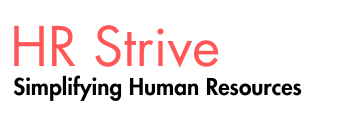HR professionals play a key role in shaping global leaders who are culturally intelligent and internationally competent. Four powerful approaches—Travel, Teams, Training, and Transfers, known as the 4 Ts—are especially effective in building cross-cultural awareness and global capabilities among leaders and managers.
Exhibit 25: The 4 Ts at a Glance
HR’s Role in a Global Organization
Operating across borders means HR must adapt to varying legal systems, labor markets, and cultural expectations. This requires a layered approach—strategic, tactical, and operational.
Strategic Responsibilities
At a strategic level, global HR must navigate the balance between headquarters' priorities and the unique needs of regional offices or subsidiaries. For example, workforce success factors in a Malaysian manufacturing unit may differ vastly from those in a European hotel or a U.S.-based research facility. HR leaders must identify talent priorities in each location and allocate resources wisely—what works in one context may not in another.
Tactical Responsibilities
Tactically, HR must design and roll out programs that deliver results across diverse political, social, and cultural environments. From global talent mobility and visa management to navigating varied tax systems and pension rules, HR teams often find themselves on the front lines of international complexity. Challenges range from sourcing skilled local talent in competitive markets to integrating new employees into increasingly diverse teams.
They also face tasks like managing international secondments and facilitating cross-border team cohesion. For instance, blending the corporate culture of a Malaysian company with that of a newly acquired European firm can be tricky—but essential.
Practical/Operational Responsibilities
On the ground, day-to-day challenges can be just as complex. HR must ensure organizational policies are accessible and locally relevant. This might involve translating HR manuals into regional languages using experts in business and legal terminology. These efforts must be budgeted and scheduled properly.
Time zone differences also present a subtle but important challenge—planning meetings and setting deadlines without considering local time can alienate teams in other regions. Failing to account for these differences can result in disengagement and poor collaboration.
In essence, cultivating a global mindset within an organization is not a one-time effort. It’s a dynamic, strategic journey that requires the thoughtful use of HR tools, cultural insight, and inclusive practices. The 4 Ts—when applied effectively—can transform how organizations think, lead, and succeed on a global stage.

No comments:
Post a Comment